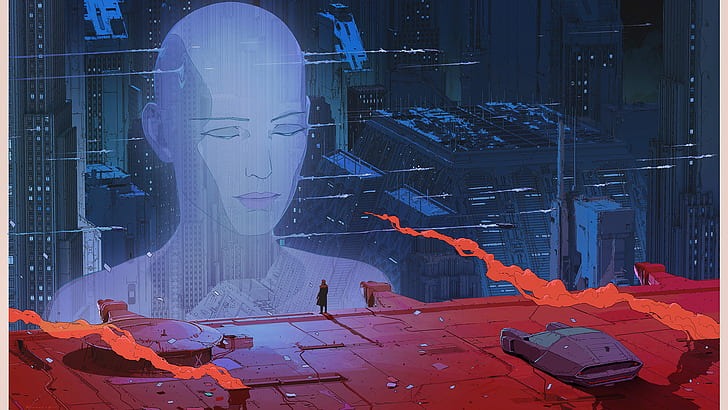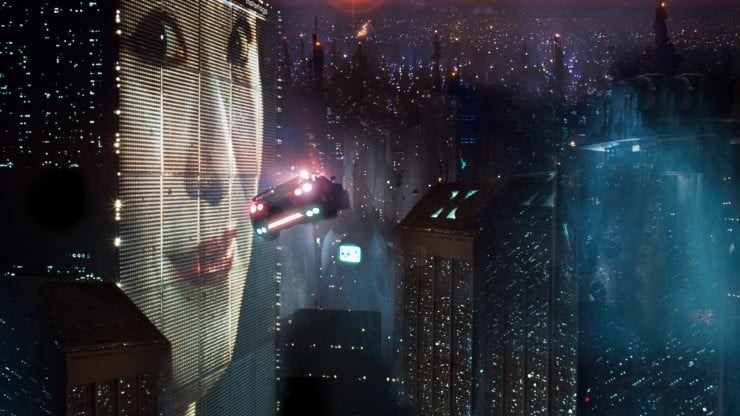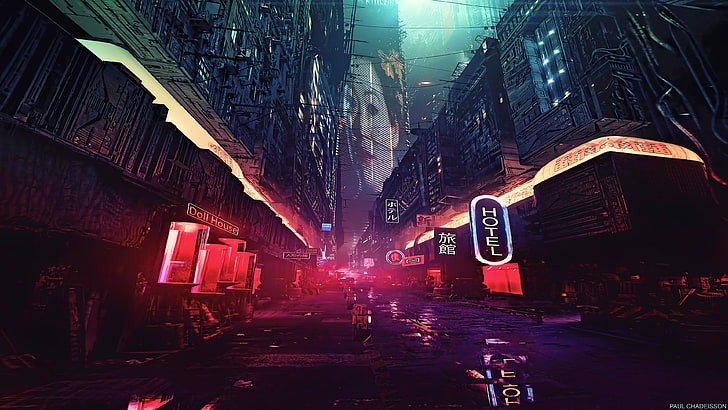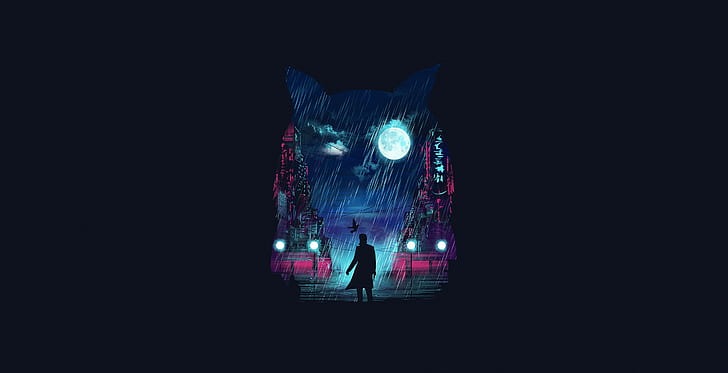Blade Runner, directed by Ridley Scott and released in 1982, is a film that has transcended its own medium to leave an indelible mark on pop culture, technology, and philosophy. Based on Philip K. Dick’s novel, “Do Androids Dream of Electric Sheep?”, the movie explores a dystopian future where artificial beings, called replicants, are nearly indistinguishable from humans. The film’s sequel, Blade Runner 2049 (2017), directed by Denis Villeneuve, expands on these themes, while staying true to the essence of the original. In this article, we delve into the importance of Blade Runner as a cultural icon and its influence on cyberpunk, cypherpunk, and artificial intelligence, as well as the integral role of its mesmerizing soundtrack.
The Birth of Cyberpunk
Blade Runner is widely regarded as the epitome of the cyberpunk genre, which combines high-tech advancements with a dystopian society characterized by social decay and inequality. The film’s dark, rain-soaked vision of Los Angeles in 2019 set the standard for subsequent cyberpunk works, such as William Gibson’s seminal novel, “Neuromancer,” and the cult classic film, “The Matrix.”
The cyberpunk aesthetic has since permeated various facets of pop culture, from literature to video games, like the Deus Ex series and the more recent Cyberpunk 2077. Blade Runner’s influence is unmistakable, with its sprawling urban landscapes, neon-lit streets, and the uneasy coexistence of humanity and technology.
Cypherpunk and Artificial Intelligence: The Nexus of Privacy and Humanity
Blade Runner’s exploration of the ethical quandaries surrounding artificial intelligence (AI) not only has had a profound impact on the fields of technology and philosophy, but also on the cypherpunk movement, which emerged in the late 20th century. This movement is characterized by its strong advocacy for the use of cryptography and other privacy-enhancing technologies to foster personal freedom, social change, and resistance against oppressive systems of control.

The cypherpunks, who draw inspiration from the replicants in Blade Runner, are united in their pursuit of a more equitable and decentralized society. The replicants, as artificially created beings, challenge established hierarchies and compel us to confront our preconceived notions about the nature of humanity and the ethical implications of advanced technology.
Blade Runner’s themes resonate deeply with the cypherpunk movement, as they share a common concern for the ethical and societal consequences of technology. The film’s portrayal of a world where replicants struggle for autonomy and recognition mirrors the cypherpunks’ fight for privacy and individual rights in the digital age. The replicants’ struggle for existence and recognition echoes the dilemmas faced by whistleblowers and privacy advocates who challenge surveillance and abuse of power.
Furthermore, the film’s examination of artificial intelligence raises important questions about the moral responsibilities and ethical considerations surrounding AI development. As we continue to make strides in AI research, the potential for creating sentient beings with human-like intelligence looms larger. This raises critical concerns about the rights and responsibilities of these creations and the potential consequences of imbuing machines with self-awareness.
Blade Runner’s vision of a future where the line between human and machine becomes increasingly blurred has inspired cypherpunk activists and thinkers to consider the implications of AI advancements on society. The film serves as a powerful reminder that as technology evolves, so too must our understanding of the ethical considerations and potential impacts on human rights and privacy.
In essence, the convergence of Blade Runner’s themes with the cypherpunk movement highlights the importance of evaluating the complex relationship between technology, ethics, and society. By encouraging critical discourse on these issues, Blade Runner remains an enduring source of inspiration for those who seek to navigate the challenges posed by emerging technologies and the future of artificial intelligence.
The Soundtrack: A Symphony of the Future
The iconic soundtrack by Vangelis, a pioneer in electronic music, is a critical component of Blade Runner’s enduring appeal. The atmospheric, synth-heavy score masterfully evokes the film’s futuristic world while simultaneously tapping into the emotional core of the story. The soundtrack’s unique blend of electronic and orchestral elements has inspired countless composers, and its influence can be heard in various contemporary film and television scores.
Conclusion
Blade Runner, as a cinematic masterpiece, endures not only because of its stunning visuals and gripping narrative, but also because of its intellectual depth and thought-provoking themes. The film’s exploration of artificial intelligence, the nature of humanity, and the blurred lines between the two has transcended time and resonated with audiences across generations. Its profound impact on pop culture, technology, and philosophy is a testament to its lasting relevance and influence.
The film’s exploration of a dystopian society where advanced technology coexists with social decay has raised important questions about our own rapidly advancing world. As we continue to develop and integrate new technologies into our lives, Blade Runner serves as a cautionary tale, urging us to consider the ethical implications of our actions and the potential consequences of unchecked progress.
Moreover, Blade Runner’s influence on the cyberpunk and cypherpunk movements has had a lasting impact on the way we perceive the relationship between technology and power. It has inspired creators and thinkers alike to challenge the status quo and explore alternative visions of the future, fostering a rich and diverse cultural landscape.
The film’s captivating aesthetic has not only shaped the look and feel of subsequent works in the cyberpunk genre, but it has also inspired countless artists, designers, and architects to incorporate its distinct visual elements into their own creations. This enduring influence is a testament to the power of Blade Runner’s unique vision and the universality of its themes.

Lastly, the emotive and atmospheric soundtrack by Vangelis has left an indelible mark on the world of film scoring and electronic music. Its innovative blend of electronic and orchestral elements has paved the way for a new generation of composers who continue to draw inspiration from its iconic soundscape.
In conclusion, Blade Runner’s unparalleled impact on pop culture, technology, and philosophy is a reflection of the film’s timeless appeal and thought-provoking content. As a cinematic beacon, it continues to captivate audiences, challenge our perspectives, and inspire us to engage in meaningful conversations about the role of technology in our lives and the ethical implications of our own creations. Blade Runner, as a touchstone of science fiction and an iconic work of art, will undoubtedly continue to influence and inspire for generations to come.
If you got this far then you might like my Blade Runner Dashboard, open a browser and click play for that cyberpunk chill workplace.








